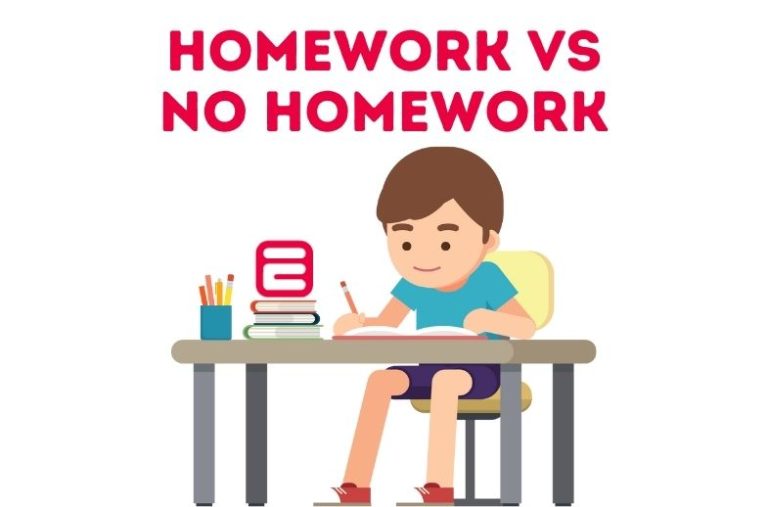For generations, homework has been a standard part of education. Besides reinforcing what the student learns in classrooms, it is also intended to cultivate discipline and responsibility among students. But a debate over its effectiveness and place in modern education has heated up recently.
The debate between homework-centered models of learning and those opposed to any assignment has generated discussions among educators, parents and students across the globe. Let’s explore these two schools of thought in greater detail, assessing their merits and demerits.
Homework vs No Homework
Advocates of homework maintain that it assists classroom instruction by providing students with additional practice and application in concepts taught during the school day. This helps students explore the material, promoting independent learning and critical thinking. In addition, homework is seen as a vehicle for promoting the ability to manage one’s time and be responsible.
Also, on the opposite extreme, anti-homework proponents stress possible dangers. Excessive homework can result in stress, burnout and imbalanced lives, which they maintain. Moreover, this may not constitute fair treatment since some students lack the opportunity to have access to resources and support outside school. Instead, it could encourage memorization completion for the sake of finishing tasks instead of actual comprehension.
Proponents of the no-homework principle advocate other ways to strengthen learning. They promote in-class activities, project-based learning and the flipped classes model (seeking to have students learn new material at home via video or online readings), and then come into class for discussions or exercises allowing teachers immediate support and feedback.
When it comes to assessing these two differing approaches, one must look at the effect on students ’ academic performance and mental well-being as well as their overall learning experience. The results of research on homework have been mixed: some studies find a positive correlation between doing one’s homework and academic success, while others show little or no benefit.
Many variables affect how effective homework is, including the nature and quantity of its assignment; the individual needs of students, and parental cooperation. However it is essential to strike a balance and design assignments so they correspond with educational purposes without overwhelming students.
People who support homework say that it teaches students discipline and responsibility, which are both necessary for success in school as well. They believe that the routine of doing assignments develops in students an important time management foundation, one they will need both for college life and working life.
But opponents of homework argue that its advantages are overbalanced by the damage it may do to students ’ minds and bodies. As long as schoolwork overload can cause stress, give students anxiety or otherwise impair the balance in their lives they should not be prevented from participating in extracurricular activities and need time off to recharge.
In addition, the equitable distribution of homework is a difficult issue. For example, students with disadvantaged backgrounds may lack resources or parental support, thereby increasing inequalities between schools. Homework can simply widen the achievement gap rather than narrow it.
Those who favor a no-homework policy, on the other hand, share ideas about different ways to supplement learning without subjecting children and families to homework stress. Suggestions include project-based learning, in-class activities and flipped classrooms. Especially in the flipped classroom, students learn new material at home on their own by way of videos or readings, and then they come to class for collaborative discussions or activities. Teachers can thus provide fast feedback and answer questions immediately as needed.
Furthermore, educators are exploring the concept of “homework-free weekends” or limited homework policies, aiming to strike a balance between reinforcing learning and respecting students’ need for relaxation and family time.

While the debate over homework continues, it’s evident that a one-size-fits-all approach might not be suitable. Instead, a nuanced approach that considers the individual needs of students, the nature of assignments, and their impact on overall well-being is crucial.
Research on the efficacy of homework remains inconclusive, with conflicting findings on its impact on academic performance. While some studies suggest a positive correlation between homework and improved grades, others indicate minimal to no academic benefit from homework. Factors such as the quality of assignments, students’ engagement, and parental involvement significantly influence the outcomes.
Balancing Between Homework and No-homework Approaches
Educators must strike a balance between homework and no-homework approaches, considering the following key factors:
Purposeful Assignments: Homework should have a specific purpose, strengthening concepts covered in class and promoting analytic thinking. It must be meaningful and have an educational purpose.
Differentiated Approach: That students are people with different learning styles and needs is known to educators. So assignments should be tailored accordingly, and help given when it was necessary.
Quality over Quantity: The quality, not the quantity of assignments is important. Overloading students with many tasks is not education: Offer homework that requires thinking about what has been learned and applying the knowledge.
Parental Involvement and Support: Communication between educators and parents must be effective. Parents can assist here by providing an environment conducive to the completion of homework, and offer assistance when needed.
Alternative Approaches: Homework alternative methods Project-based learning, in-class activities and technology improved teaching are potential substitutes for traditional homework.
Conclusion
The purpose of education isn’t merely to achieve good grades and test scores but involves a comprehensive development for students. Finding a way to balance between the homework and no-homework approach is not impossible. It requires thoughtful consideration of what are educational goals, and student wellbeing, as well as an evolving landscape for learning methodology. Educators who struggle with this dialogue should keep the following in mind: cherish a love of learning, develop students ’ ability to think critically and enable them to prepare for an uncertain future.

